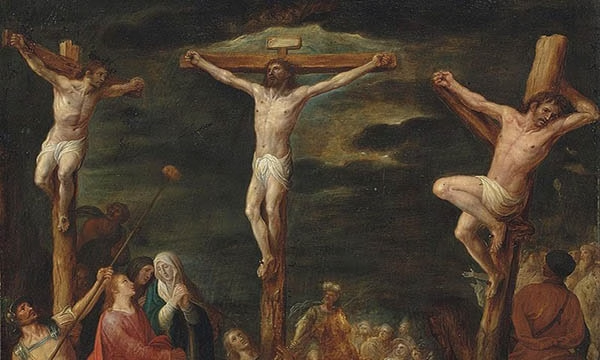
November 23, 2025; Luke 23:35-43; Christ the King
“People should get what they deserve.” I think few of us here would disagree with this statement. It is the basis of our legal system. It is a guide we use in our relationship with others. People must be held accountable for their actions, and when they act in a way that is dishonest or immoral, there need to be consequences.
As valid as this principle is, it is ignored in today’s gospel. One of the criminals crucified with Jesus is not held accountable. The scriptures do not give us this man’s name, but tradition has provided the name of Dismas. Dismas deserved to be crucified, and he knew it. He tells the other criminal being crucified with him that their sentence of death was just and corresponds to their crimes. So Roman law held Dismas accountable, but Jesus did not. When Dismas asks Jesus to remember him, there is no discussion of his crimes or his unworthiness. Jesus simply states: “Today you will be with me in paradise.” These words of Jesus reveal to us that our justice is not the same as God’s justice. Our justice must hold people accountable, but God’s justice always leans towards mercy. This does not mean that God dispenses with human responsibility or believes that everything is up for grabs. But it does insist that God always sees the person behind the sin, and God sees that person as a beloved daughter or son. That is why forgiveness abounds and criminals enter paradise.
Two things flow from this important insight. The first is, God will never turn us away—no matter how seriously we have failed, no matter how selfish we have been, no matter how consistently we have sinned. The moment we turn and say to God, “Remember me,” we will experience welcoming and love. The second consequence is that our justice should be influenced by God’s justice. As we rightly hold people responsible, we must never forget that they are children of God. A person who has broken a civil law, a moral law, an immigration law, does not thereby lose their inherent dignity. Therefore, as we enforce our laws, we must do so in a way that is both respectful and humane.
Although he was a criminal, Dismas entered paradise because of God’s mercy and love. That’s the way that God deals with us, and that is the way God calls us to deal with each other.
